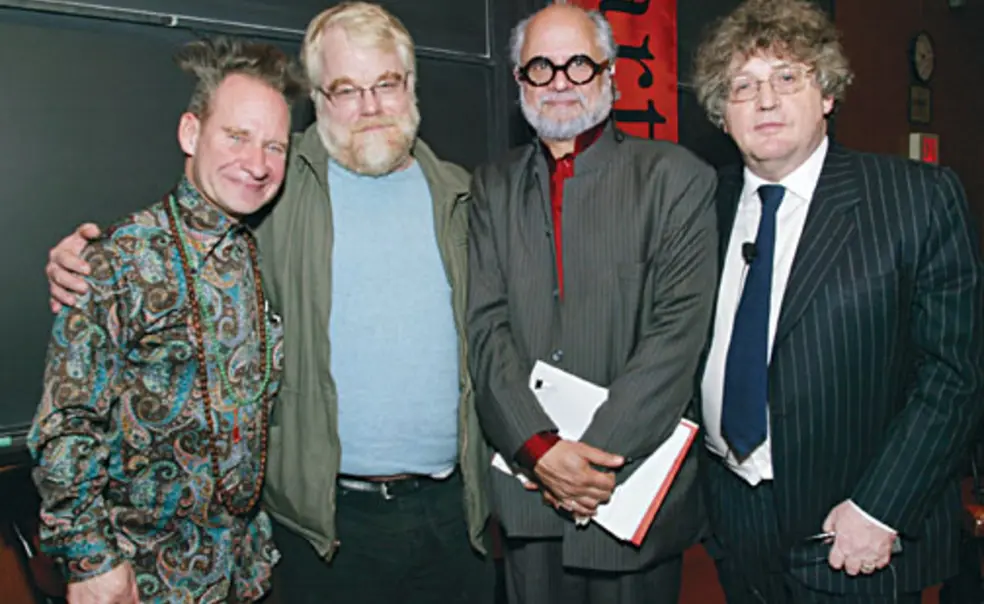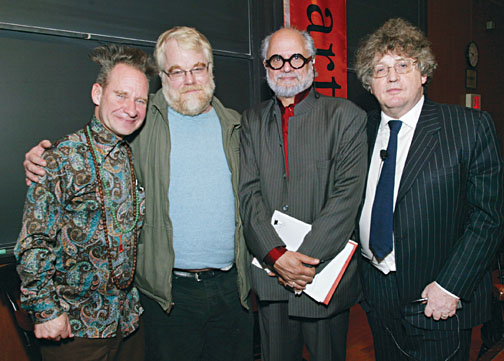Valuing the arts in a time of crisis
One day last spring Paul Muldoon was struck by the realization that every story in the “Arts, Briefly” column of The New York Times reflected the difficult financial situation facing arts organizations — from a museum making program cuts to an orchestra canceling concerts. Muldoon, a poet and professor who is chairman of the Lewis Center for the Arts, read those headlines to open the center’s Nov. 14 symposium “The Arts and the Economic Crisis,” a gathering of arts advocates, artistic directors of various organizations, scholars, and artists.
Organized by Muldoon and Ellen Goellner, associate director of the Princeton Atelier, the symposium in McCosh 10 examined the struggle of securing funding in a tough economic climate and other challenges that face arts organizations.
In the first of three panels, Robert Lynch, president of Americans for the Arts, advised arts advocates to develop relationships with key government decision-makers. Before they will invest in the arts, he said, elected officials need to understand that art is not an elitist aspect of culture, but one that is essential to making sense of the world and our place in it.
Randall Bourscheidt, president of the New York-based Alliance for the Arts, emphasized that the vitality of urban areas is tied up with the arts. He called for more reliable data related to the arts’ economic impact, noting that the arts industry generates 160,000 jobs in New York City.
Even in the best of times, “it’s always a struggle” to secure support and funding, noted Muldoon. Yet participants on the second panel said the lack of investment might spark new, creative approaches. Oskar Eustis, artistic director of New York’s Public Theater, suggested that one way to develop audiences is to make shows more accessible, pointing to Shakespeare in the Park, which is free and open to the public. Interest in that program, he said, has generated interest in the Public Theater’s other programs.
The dilemma is more profound than an economic one; it’s a “crisis of humanity,” judging by where the nation directs its tax dollars, said opera and theater director Peter Sellars. After a day of often grim discussion about finding ways to convey the social relevance of the arts, actor Philip Seymour Hoffman, who starred in the films Capote and Doubt, lightened the mood a bit, saying, “Actors are silly. What we do is silly.” But he noted that art is a means of giving voice to other people in difficult situations. As an actor who often portrays broken characters, Hoffman said he asks himself, “How can I ... be in the other person’s shoes?”













No responses yet